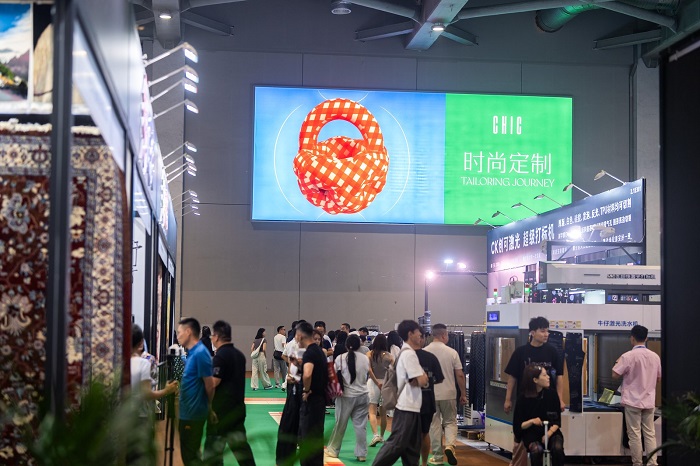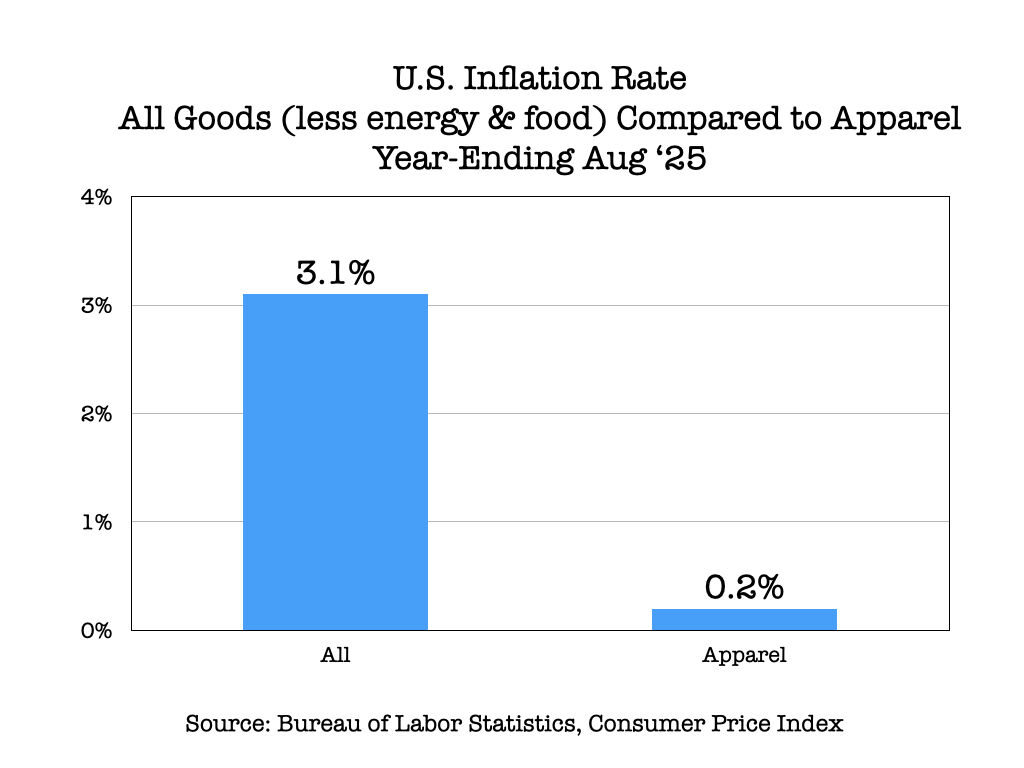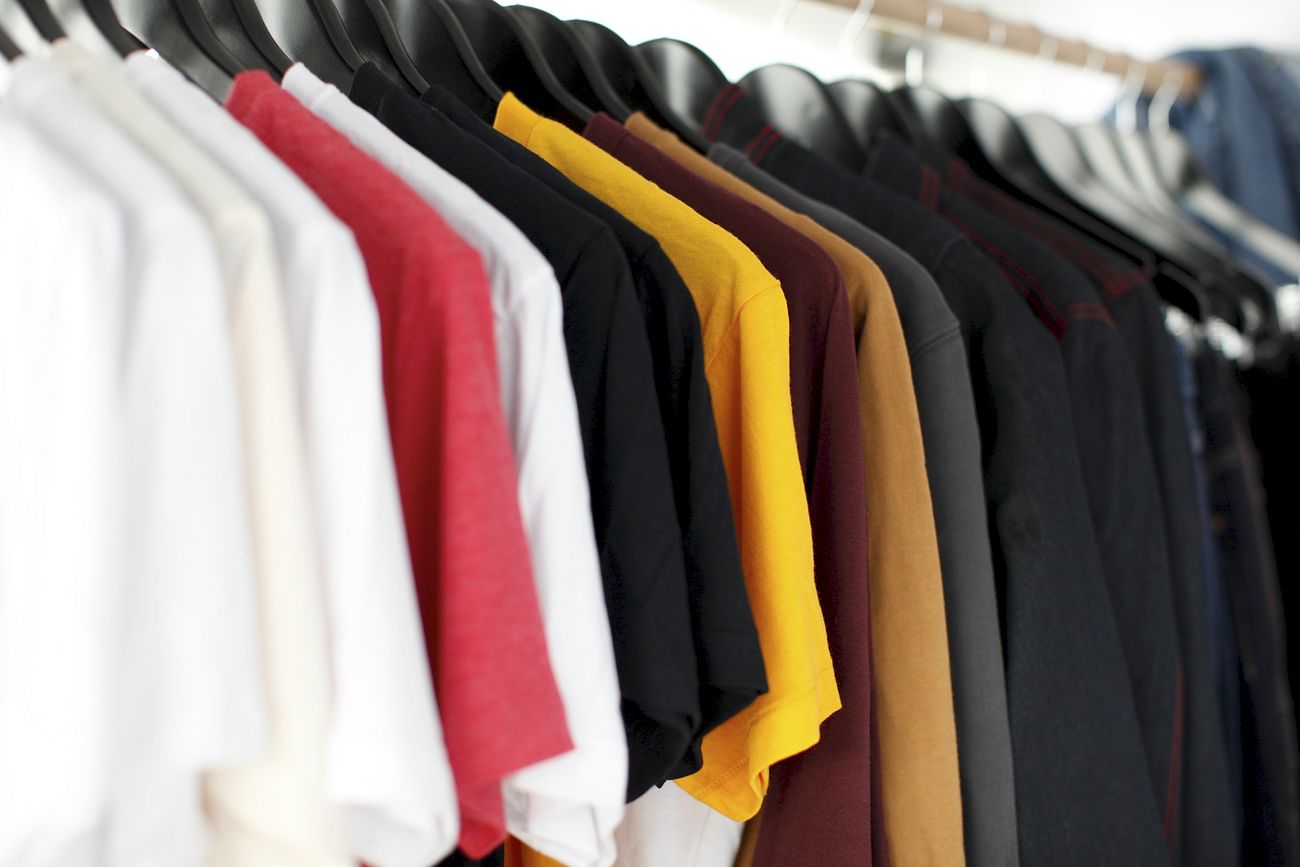FW
Kingpins Show will be held an edition in Amsterdam from April 18 to 19, 2018. The show will focus on industry novelties of fall/winter 2019-20. Sustainability and transparency will be a major focus at the show. Elleti, an Italian specialized laundry and garment manufacturer, will present a capsule collection of replicas of historical denim pieces produced according to its most innovative sustainable technologies.
Many Kingpins exhibitors have focused on eco-friendly products and they are expected to exhibit them at the upcoming show. Arvind is launching 100 per cent denim, zero per cent cotton, a small new selection of fabrics that employ alternative fibers that can help reducing the market’s dependence on cotton. Berto is presenting a series of fabrics entirely made with scraps from its own production and dyed with low C02 emission technology. Calik Denim offers an updated version of its oxygene finishing. Cone Denim presents its new Trutone Future Black made by recycling 17 pet bottles for black-stay-black denims. Denim Expert is offering a new sustainable collection that employs Green Screen certified substances only. Foison launches a new collection that when dyed reduces sulfur carbon and sodium release by 80 per cent.
Garmon is launching its new Stretch Care family of sustainable chemicals. Indigo Textiles launches fabrics treated to reduce the need for washing. Kilim launches denim made by recycling post-consumer denim fabric products.
HKTDC will host Hong Kong Houseware Fair and Hong Kong International Home Textiles and Furnishings Fair simultaneously from April 20 to 23, 2018 at the Hong Kong Convention and Exhibition Centre (HKCEC). The two fairs are expected to attract more than 2,600 exhibitors from 26 countries and regions, making it an ideal platform for companies to explore business opportunities in house ware, home textile and furnishing sectors. The main theme for this year’s event is L.I.F.E, standing for Lifestyle, Interior, Feast and Enrich, the four major themed zones.
Start-ups, which are essential for the sustained development of an economy, will be in focus at Houseware Fair. The show will feature start-ups from Hong Kong, the Chinese mainland, Taiwan and first-time participating country Bangladesh. Start-ups can discover further business opportunities by presenting their products and business ideas to buyers and investors at the two fairs.
Four trend concepts will be displayed to focus on the fair themes. A trend seminar will also be organised to unveil houseware trends for summer 2019. The two fairs will also feature product demo and launch pad sessions, international kitchenette and latte art performances as well as a series of seminars exploring technology trends in the building industry and testing, certification and inspection services for houseware products.
About 31 per cent of readymade garment factories in Bangladesh have completely failed to fix safety faults, while 36 per cent factories making less than 30 per cent progress in repairing structural, fire and electrical faults. Factory owners had promised they would complete factory remediation by April 2018. Safety hazards pose a major threat to workers’ lives.
Following the Rana Plaza building collapse in April 2013 that killed more than 1,100 people, nearly 3,780 garment factories were assessed under three initiatives, Accord, Alliance and the ILO supported national initiative. Of the 745 factories, 230 are yet to start any remediation work in the last two and a half years after completion of initial inspection while 272 factories have made less than 30 per cent progress.
Out of 3,780 garment factories, 1,549 were inspected under the national initiative, of which 531 closed down, 69 relocated and 193 units shifted to the Accord and Alliance lists. More than a 100 readymade garment factories in Bangladesh are operating in risky buildings. This despite an order to vacate buildings that put workers lives at risk. And factory and building owners have been repeatedly asked not to use buildings without retrofitting or renovation.
Egypt will expand cotton cultivation next year to meet growing global demand. Nearly 70 per cent of Egypt’s cotton production this year was exported. However, the value of exports fell by four per cent between 2012 and 2016.
A strong return for Egyptian white gold is expected soon in global markets. After a catastrophic year for Egypt’s cotton in 2016, demand has emerged in the global market. Egyptian cotton is preferred for towels and bedding among American consumers. It is the most recognized cotton brand in the United States. Egyptian cotton is also the name most people associate with quality and are prepared to pay a premium for it. In the past two years, Egypt has taken measures to restore seed purity and cotton quality.
The country’s cotton’s reputation and quality had deteriorated significantly due to seed companies’ lack of effective quality assurance systems that resulted in inferior, mixed-variety output. Now, the length, strength, firmness, color, trash count and maturity have all improved. If Egypt’s cotton industry returns to its previous glory, the economy would flourish, spinning and textile industries would boom, and stalled factories would reopen.
In 2014, Columbia Sportswear set up a joint venture in China called Columbia Sportswear Commercial with Swire Resources. Columbia Sports owns 60 per cent stake in the JV. Now, Columbia plans to buy the remaining 40 per cent from its Chinese joint venture partner.
Following the acquisition, Columbia Sports plans to continue investing in the brand’s development in China, while also expanding its distribution network through both direct channels and dealer-operated retailers. The company will maintain the joint venture’s current staff and management team.
The acquisition is consistent with Columbia’s strategy to accelerate investment as a brand-led, consumer-first business in the areas of highest growth potential for its existing brands. In 2017, the joint venture rake in $168 million in sales and is on track to see high single-digit growth in 2018. Columbia Sportswear is a US-based outdoor and sportswear group. Swire Resources is a subsidiary of Swire Pacific.
Columbia Sportswear currently operates in 86 locations across China and also sells through brand-specific websites, and some 50 wholesalers operating around 750 locations between them. After the acquisition, Swire Resources will continue to be Columbia Sportswear’s exclusive independent distributor in Hong Kong and Macau. The acquisition is expected to complete around January 2019.
China is entering into a new phase of opening up. Plans now include broadening market access, raising foreign equity caps and creating a more attractive investment environment. The country relied mainly on providing favorable policies for foreign investors in the past, but now will rely on improving its investment environment. It will strengthen protection of intellectual property rights, or IPR. This is the centerpiece of the system for improving property rights protection, and it will also provide the biggest boost to enhancing the competitiveness of the Chinese economy.
The country this year will significantly lower the import tariff for vehicles and also reduce import tariffs for some other products. This seemingly reconsidered stance comes amid escalating tensions between the US and China, which have been locked in a tariff standoff. China outlined $50 billion worth of tariffs on US goods including cotton. The US detailed 1,300 products from China that would face new tariffs.
The back-and-forth has sent markets roiling, stocks tizzying and kept apparel brands and manufacturers on edge as they wait to see how things will shape up. Concerns over China’s intellectual property practices have been largely the focus of America’s tariff targets. The US says China forces US companies looking to do business there to transfer sensitive data and intellectual property.
"America’s biggest fashion retailers including Ralph Lauren, Calvin Klein are now looking at a revival of blue jeans while losing out to athleisure wear which has overpowered jeans in recent times. The US Census Bureau recently pointed out last year, imports of elastic knit pants surpassed those of jeans for the first time ever. To bring back the vigour, these companies have renewed their thrust on denim manufacturing lately. The biggest reason for such a deterring performance is stagnant designs or lack of uniqueness. While microtrends such as cropped flares and ’80s throwbacks pop up here and there but the skinny jean has remained the dominant style for more than a decade."

America’s biggest fashion retailers including Ralph Lauren, Calvin Klein are now looking at a revival of blue jeans while losing out to athleisure wear which has overpowered jeans in recent times. The US Census Bureau recently pointed out last year, imports of elastic knit pants surpassed those of jeans for the first time ever. To bring back the vigour, these companies have renewed their thrust on denim manufacturing lately. The biggest reason for such a deterring performance is stagnant designs or lack of uniqueness. While microtrends such as cropped flares and ’80s throwbacks pop up here and there but the skinny jean has remained the dominant style for more than a decade.

Levi Strauss & Co. too struggled for years to attain profit amid performance wear growth. With the company posting an 8 per cent increase in revenue in 2017, here’s some good news for fellow jeans manufacturers to buck up their performance. In line with this, Downtown streetwear brand Off White’s washed jeans drew a lot of interest for reworked denim, just as the patchwork jean styles from Vetements led the trendy label to collaborate with Levi’s. Brands are utilising technology to lure shoppers who demand more stretch and moisture-wicking, integrating fibres such as elastane and lyocell.
Emanuel Chirico, CEO, PVH Corp., which owns Tommy Hilfiger and Calvin Klein, points out an ‘incredible improvement’ in its jeans businesses worldwide. Chirico believes the revival is due to the popularity of ’90s style, and PVH putting its marketing dollars behind it. As far as Calvin Klein is concerned, he says the limited jeans product that the company has focussed on rolling out is paying huge dividends for them. Meanwhile, Ralph Lauren Corp., also plans to catch the bandwagon and will refocus on jeans wear. Denim represents just 2 or 3 per cent of the company’s total revenue, and the management intends to increase the numbers. Beyond big ticket brands, mass-market labels such as American Eagle Outfitters Inc., are also gearing up for the good times with their volumes registering an uptick. At J Crew, denim led its sister brand Madewell to
record sales both in stores and online last quarter. Madewell continues to report double-digit increases in comparative store sales, thanks to jeans. Art Peck, CEO, Gap Inc., also reported good performance of the women’s denim. Gap even conducts internal ‘denim summits’ to improve its jeans across all its brands.
Tawian has emerged as a strong textile power globally. The 2018 TEPP promotion campaign launched at INATEX 2018 that took place last week in Jakarta International Expo saw many Taiwanese companies producing functional and fashion textiles showcase their latest innovations. Every major brand in the world depends on Taiwan for leadership in textile development, innovation and quality. Brands like Nike, the North Face, Adidas, Under Armour, Columbia, Lululemon, Jack Wolfskin and others rely on Taiwanese companies for innovation and eco-friendly products.
As one of the leaders in chemical fiber, Taiwan has developed various functional and eco-friendly textiles for the global market, thereby being recognized as an international sourcing hub. After more than 60 years of development Taiwan's textile industry has evolved from a mass production textile supplier to a textile innovator equipped with a comprehensive yet integrated value chain.
While traditional textiles still have an important share in Taiwan’s textile output, the extraordinary performance achieved by local enterprises in the field of eco and multifunctional textiles has redefined Taiwan's status in the global textile market place.
The Taiwanese textile industry has developed environmentally-friendly concepts and done recycled polymer and polymer blends. From yarns for apparel to industrial and sport accessories, recycled yarns are growing in importance and are a core part of Taiwan’s textile industry.
Mixtures of new technologies and fashion allow new design elements that were hard to imagine in the past. Polymer based yarn developments in polyester, nylon, recycled and blended with natural fibers, lead the way.
Italian menswear show Pitti Uomo has entered a collaboration with Danish trade show Revolver. This will provide a chance for a selection of Scandinavian labels, both established and emerging, to showcase their talent in contemporary menswear.
Revolver represents the most progressive contemporary Scandinavian designer-driven fashion brands. The trade show welcomes a huge number of visiting buyers, press, and industry insiders.
The Pitti Uomo-Revolver partnership which starts next June is planned to last for three seasons. This season, it will allow 15 Scandinavian menswear labels to showcase their collections within a genuinely Nordic atmosphere, since the section will also feature iconic contemporary design brands from the furniture, art and food sectors.
The collaboration marks a step forward for Revolver, which is keen to promote Scandinavian creativity, notably in Italy. In recent seasons, the Danish trade show partnered with Milan-based fashion innovation event White Milano. The collaboration with Pitti Uomo will now give Revolver access to one of Italy’s major fashion shows.
Pitti Uomo is a biannual event that attracts buyers from around the world, designers and creative people, industry players and managers. It includes presentations, fashion shows, displays and installations. The trade fair plans an exhibition on the theme of fashion and football next June.
Textile mills in south India, which are facing a high rate of attrition, plan to conduct a job fair at Tripura on April 25 to 26 to recruit workers directly. Seven textile mills would take part in the fair with an aim to recruit about 4000 workers. This is on a trial basis and candidates can join work immediately. There are several schemes of the central government under which mills will train the workers for three months and then induct them as operators.
About 2,500 textile mills in the south employ close to seven lakh workers, of which more than 60 per cent are migrants. A migrant worker stays at a unit for just seven or nine months and leaves. This affects almost 30 per cent of the production. There is no process to verify the profile of workers and mills are unable to find out if a worker who goes home will return or not.
So migrants need to be trained not only in work but also in workplace systems. Hence it was decided to conduct job fairs in different states where mills can recruit directly.
Tripura has extended support for the initiative. It will identify eligible candidates village-wise and verify their details. Just a group of villages are taking part in the job fair initially.












